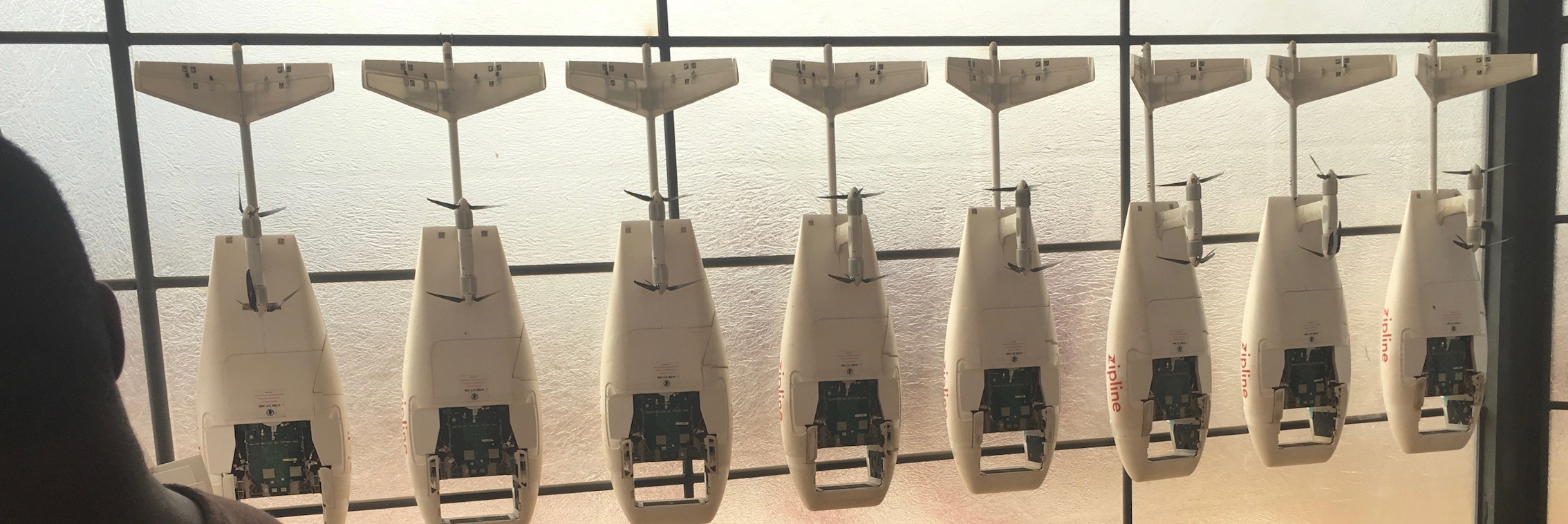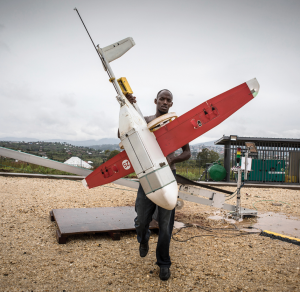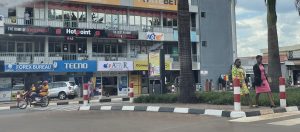HANS STOISSER
In search of new markets? – Rwanda, the “proof-of-concept-country”

The small East African country Rwanda has discovered its competitive advantage in our interlinked global society. It offers a greenfield for proof-of-concept of digital innovations. And expects a contribution to its development.
“Everyday we dispatch between 30 and 45 flights from this drone port here in Muhanga”, the flight operator says. The US-based company ZIPLINE has launched regular operations in Rwanda in 2016, being the first cargo-drone line in the world.
The visit to ZIPLINE was one of the highlights of our “Learning Journey to Digital Rwanda” in August.

From two bases in Rwanda drones transport blood and medical supplies to rural hospitals and health centres. For the local health system, drones have become an indispensable part of its logistics.
During the last more than two years, ZIPLINE has gained vast experiences in operating cargo drones. It has further developed drone technology and organizational processes. Its drones are four times faster than those of Amazon and in its field of use, ZIPLINE is seen as the world’s most advanced drone service provider. Today, ZIPLINE is about to launch drone services in the US.
After mobile money, cargo drones seem to be the second important modern technology which has been developed in an African country first, before being exported to other parts of the world.
Rwanda’s strategy
It is no coincidence that ZIPLINE has chosen Rwanda as its first country to launch operations. The “country of a thousand hills” invites companies offering services which can contribute to its development to invest and test its business models.
German Volkswagen came and set up what they call an “assembling factory”. Disjointed car parts are shipped from South Africa to Rwanda before being assembled there. Additionally, together with local IT companies, Volkswagen has developed from scratch a new mobility app. Today, 250 VW-Polos circle through Kigali, Rwanda’s capital, and can be hired through the new app “Move”. I have used the service several times, it works perfectly well.
Soon, first electric cars from Volkswagen will arrive. Siemens, another German company, will implement a system of charging stations in Kigali.

On our tour we have also visited Babyl, an offspring of the UK based Babylon health. In Rwanda, it has set up digital health services for the last two years. In a country with a big scarcity of doctors and nurses and without a full-fledged road system, digital online services can provide tremendous benefits for the people. Up to date, 600.000 people have been consulted.
And there is Maraphone, Africa’s first mobile phone production. The Rwandan-Indian company is about to start production in its new factory in Kigali’s industrial zone. We have visited its brand-new state-of-the-art machinery and production line. High-end Android-based smartphones will soon be delivered to all over the African continent and later on to the rest of the world.
The “proof-of-concept-country”
What do all these companies have in common? They have chosen Rwanda as the first place to launch operations. For a “test-and-learn” phase and a proof-of-concept of business models the country offers remarkable advantages:
- As an African country “leapfrogging” from a rural to a digital society, Rwanda offers something like a greenfield for discovering real customer value of modern services.
- Compared to Europe, much less regulations and vested interests are hindering the launch of new business models.
- Rwanda has a stable government which is committed to the private sector. It is not only advertising foreign direct investments, “aftercare services” also support investors along their journey towards new products and business models.
A simple deal
The government calls its country “land-linked”, instead of “land-locked”. Indeed, in our emerging interlinked global society, Rwanda has discovered its competitive advantage. It offers a win-win solution for innovative and globally acting companies:
Proactive support and local markets for the development and proof-of-concept of innovative technologies and business models “against” a contribution to the economic development of the country.
So, which innovative companies are in search of new markets? And at the same time have something to offer for the needs of people in Rwanda?
More about Learning Journeys to digital Africa you find here.





